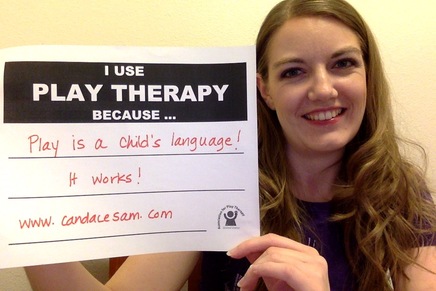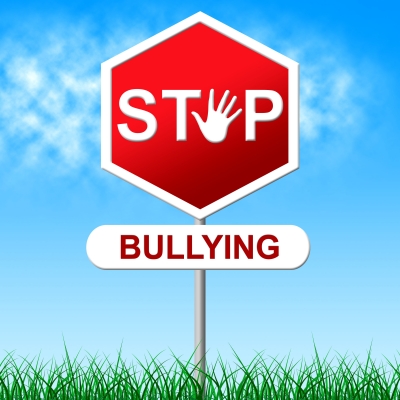|
We're celebrated Play Therapy this week! I thought I would share a little about what I know and why I do what I do! I know I've posted this video before through twitter and other social media outlets, but for those of you who have not watched it, I encourage you to do so and explore more about Play Therapy. It's not a traditional "talk therapy" but this is exactly why it works. “Play is the child’s language.” (Association of Play Therapy). Children learn and explore through play. I believe an appropriate way to process traumatic events or intense feelings is through this technique. Therapy in general is about meeting people where they are at. Children have not yet developed that level of processing or verbal skills to explain what they are feeling, but instead play it out. Play is where children are at.  Image courtesy of Ambro/FreeDigitalPhotos.Net Image courtesy of Ambro/FreeDigitalPhotos.Net I recently posted a blog post about bullying. In it I talked about what bullying is exactly. Let me first start out by reviewing some of that information. Bullying can take the form of physical, verbal or relational repeated behaviors towards another person. What most kids don't really is bullying can also be emotional which also consists of things such as name-calling, teasing, taunting, harassing, stealing, hazing, spreading rumors, excluding people or spreading lies. This can happen in person or online through cyber bullying. Most children often think of bullying as strictly physical and only recognize outright "meanness" happening. But a lot of kids (or adults for that matter) may actually be bullies themselves without realizing it. Here are some questions kids can ask themselves or parents can ask their kids to keep bullying in check. 1. Do I put people down to feel better about myself? Where do your self-esteem come from? Does it come from others and putting other people down or does it come more from yourself? Are you proud of yourself no matter what you do? Someone who puts others down excludes other people at times because they do not want to be seen with them and they do not "fit in" as much. 2. Do I listen to people and respond appropriately? Do I show empathy and understanding about people? Am I generally interested in what they have to say and want to help them? Do I generally care about them or do you give them automated responses? Other people make fun of others while they are talking or constantly interrupt them. That can be seen as bullying. 3. Do I want to be seen as tough? Do you have more leadership qualities or are you the "tough" bully? If you use physical control and power to get your way such as shoving, taking, stealing, throwing, or teasing in a mean way then you might want to be seen as tough. A leader wouldn't have to do anything like that. Or they might stop something like that from happening. 4. Do I "call the shots" just because I can? Do you boss people around just because you can and they are listening to your demands? Are you manipulative at times to get your way? Just because you can do something doesn't mean you necessarily should. It's ok to have that power and natural leadership ability, but again, doesn't mean it has to be used that way. 5. Do people trust me and come to me for advice? You can't be a bully if this is true. Nobody wants to come to someone else if they are just going to be put down. Not many people open themselves up to that. If you generally care about people, it shows. 6. Do I have an appropriate sense of humor? By appropriate I mean not being rude or sarcastic while people are talking. Without meaning to kids sometimes make people laugh often at someone else's expense, especially at school. It's ok to make people laugh, but unnecessary to hurt someone else in the process. 7. Have I bullied anyone online? Saying things someone you wouldn't say in person, sending out hidden messages in status updates or comments, spreading messages, or looking at someone else's profile and teasing them behind their back with some of your other friends is actually cyber bullying. 8. Do you resolve conflicts appropriately? The appropriate way to resolve conflict would be to confront the problem at the source directly. This does not include fighting or getting revenge either by yourself or through someone else. It also does not mean spreading rumors again, at the expense of someone else no matter how much they hurt you or have done something to wrong you. 9. Am I a bystander? Do you sit by and watch some of these things happen without stopping them? Or are you the type of person to stop it in its tracks. A bystander is a bully by default or association. Most of us are probably not "bullies" but I bet there are elements in there that might ring true. This might be something you may be doing or have done in the past. Even as a therapist, I can admit that there are times in my past and sometimes even now when I am not as nice as I could be and may be a bully without realizing it. It's ok to make mistakes, but the important thing is what are we doing to reconcile our mistakes. Or as parents, how are we teaching our children to correct these mistakes and stop being a bully? It's nice to be important, but it's more important to be nice. What you say and do sticks with people and creates a lasting image for yourself and for their self and sense of self-worth. Let's all work to build each other up and not bring each other down. A recent article posted by Psych Central identifies bullying in teens leads directly to depression as a young adult. See full article here. Researchers attributed up to 30% of depression cases in young adults as researched at Oxford had a direct relation to bullying.
Bullying is a hard topic to speak about. So far there is no "cure" for bullying. Often times the new "Zero Tolerance Policies" schools have now adopted still don't work as well as they should. How do we both stop and handle this rampant problem? First understand, what is bullying exactly. Bullying can take the form of physical, verbal or relational repeated behaviors towards another person. Bullying consists of things such as name-calling, teasing, taunting, harassing, stealing, hazing, spreading rumors, excluding people or spreading lies. This can happen in person, or more recently online with cyber bullying. A lot of kids don't realize they are being a bully by doing some of these things and only relate physical aggression as bullying. Second, it is important to teach children and adolescents possible reasons why bullying occurs. Bullies themselves often bully other people because they might be jealous, they might gain more popularity, it makes them feel more powerful, they are being bullied or abused themselves, or they are trying to escape from their own problems. There is no excuse for bullying, but sometimes there is a bigger picture. Third, the victims need to focus in on themselves. Victims should work on building up their self-esteem and appreciating themselves for who they are. Learn to not blame yourself and shoulder that responsibility. Victims never earn or deserve bullying. Victims also should learn appropriate coping skills to handle stress and bullying appropriately in the moment. Look at the big picture and understand what is happening and focus more on the positive to not let it affect internal thoughts and feelings. So what is your ultimate task list? First of all, always get help. Nobody should have to deal with bullying. Find a teacher or older adult to stop it from happening in the moment. Get a plan in place to handle it. Other things that you could do are simply to walk away and don't show that it affects you. Most bullies will eventually get bored and stop if they do not get the reaction they want. And lastly, remember to use appropriate skills to handle what is going on and not ignore it so it does not ultimately lead to depression later in life. There is help out there, most people just need to find what works for them. Other helpful references: HelpGuide.Org KidsHealth StopBullying.Gov This is a technique that is part of Cognitive Behavioral Therapy. It's something that takes practice, but can help people of all ages manage mental health symptoms and difficulties with problems such as depression, anxiety and self-harm.
My first ever video blog! Learn about how to spend quality time with children to decrease things such as problem behaviors and other mental health symptoms.
|
Categories
All
Archives
April 2016
|



 RSS Feed
RSS Feed
